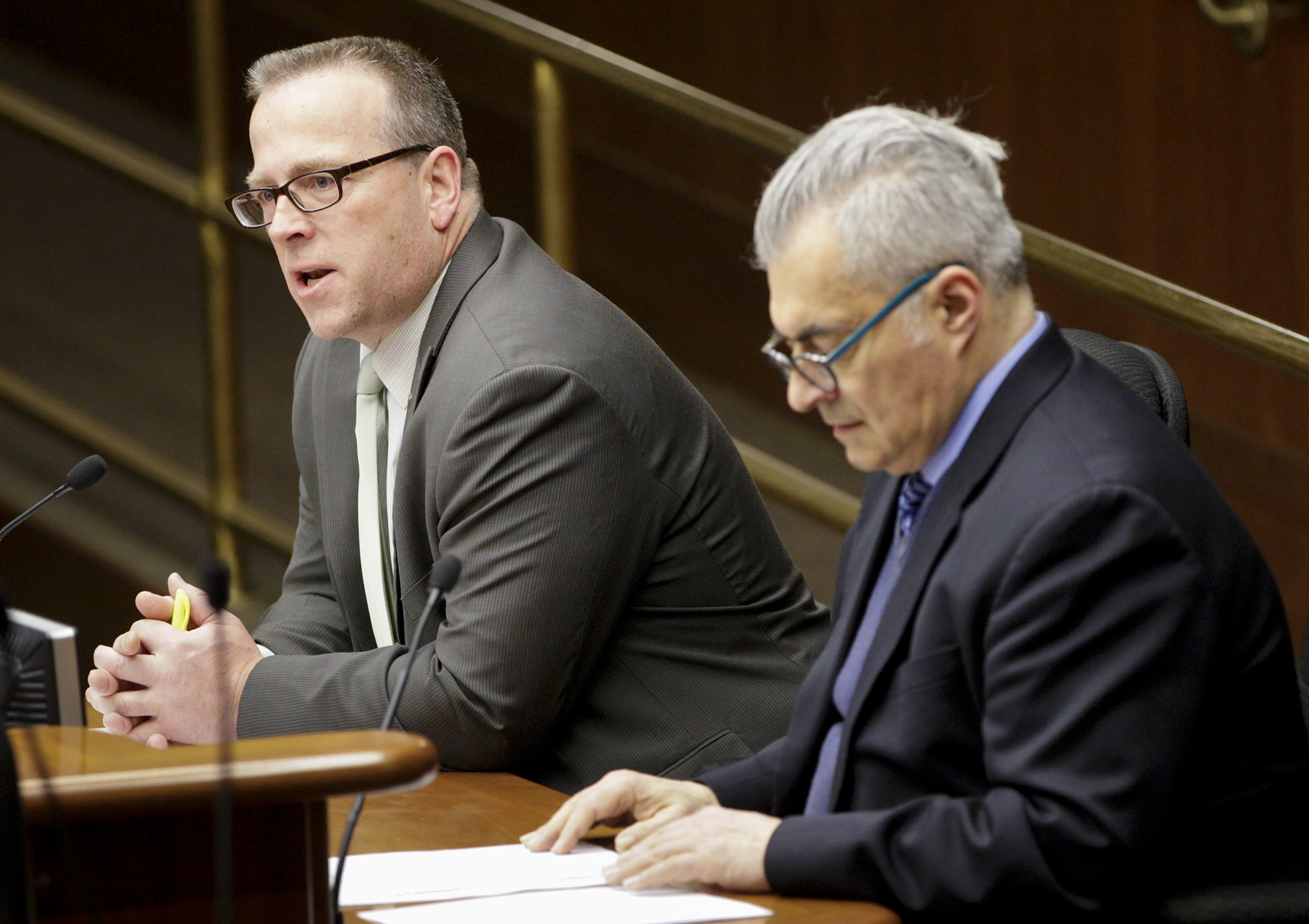District charter school authorizers seek simplified reporting requirements

Only three school districts in the state currently serve as authorizers of charter schools, and two of these are considering whether they’ll continue to be, Minnesota Association of Charter Schools Executive Director Eugene Piccolo told the House Education Innovation Policy Committee Thursday.
Piccolo and other supporters hope HF2511, sponsored by Rep. Bob Barrett (R-Taylors Falls), would relieve some of the paperwork burden to help districts continue to serve as charter school authorizers.
“There was an exit of districts that were stymied by the process,” said Rep. David Bly (DFL-Northfield). “They are struggling with the burden that is placed on them to continue being authorizers.”
The bill would allow school districts to substitute a “statement of assurance” for other reporting requirements and require the Department of Education to minimize duplicative reporting.
The committee held the bill over for possible inclusion in its omnibus bill. A companion, SF2234, sponsored by Sen. Kevin Dahle (DFL-Northfield), awaits action by the Senate Education Committee.
Dr. Chris Richardson, the superintendent of the Northfield school district, said he has seen a significant increase in the requirements for the district to renew its authorizer status. For the most recent renewal, the school has produced 1,000 pages of documentation—so far—and is particularly frustrated by questions about its capacity to support charter school programs, he said.
“We believe that as school districts, we are uniquely qualified to support charter schools,” he said. “With 75 years of experience between myself and the other administrators in the district, there isn’t really anything we haven’t run into.”
As an authorizer of the TRIO Wolf Creek online charter school, the Chisago Lakes School District assists the charter with everything from finances to issues of student discipline, said Heide Miller, the district’s business services director. Assisting TRIO “in every way” is not a problem, given the expertise the district has, she said—the problem is the “enormous amount of paperwork.”
Assistant Education Commissioner Kevin McHenry said the department is committed to streamlining the system and reducing duplicate reporting. In 2009, when the Legislature changed the former “sponsor” role to the current authorizer role, the department was charged with developing an authorizer evaluation system, he said. At the time, no other state had such a system.
McHenry said he was concerned about changing evaluation rules to make them different for school districts than for other authorizers. Nonprofit organizations, colleges and universities can also serve as authorizers.
Rep. Barb Yarusso (DFL-Shoreview) said she appreciates the bill’s intent, but is concerned that a statement of assurance might not be adequate for all districts. She suggested adding an “escape clause” for the department to require additional reporting in some cases. Nobody wants to see charters close mid-year, she said. “We want to make sure they succeed.”
Related Articles
Search Session Daily
Advanced Search OptionsPriority Dailies
Speaker Emerita Melissa Hortman, husband killed in attack
By HPIS Staff House Speaker Emerita Melissa Hortman (DFL-Brooklyn Park) and her husband, Mark, were fatally shot in their home early Saturday morning.
Gov. Tim Walz announced the news dur...
House Speaker Emerita Melissa Hortman (DFL-Brooklyn Park) and her husband, Mark, were fatally shot in their home early Saturday morning.
Gov. Tim Walz announced the news dur...
Lawmakers deliver budget bills to governor's desk in one-day special session
By Mike Cook About that talk of needing all 21 hours left in a legislative day to complete a special session?
House members were more than up to the challenge Monday. Beginning at 10 a.m...
About that talk of needing all 21 hours left in a legislative day to complete a special session?
House members were more than up to the challenge Monday. Beginning at 10 a.m...